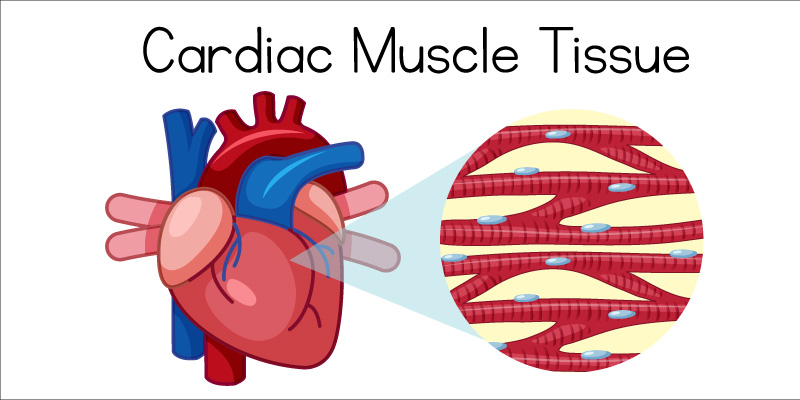Cardiomyopathy is a progressive condition, in which the heart muscles are (myocardium) weakened. Due to this condition, the heart is unable to pump the blood through the body. The condition can occur over time (acquired) or a person may have this problem by birth (inherited). The condition may cause other serious conditions such as irregular heartbeat (arrhythmia), heart failure, etc.
When this condition occurs, the heart muscles become thick, stiff, or get filled with the substance that weakens the ability of the heart muscles to pump properly.
Cardiomyopathy can be of the following types:
- Dilated Cardiomyopathy: This is the most common type of Cardiomyopathy, in which the heart’s pumping chamber i.e., ventricles are unable to pump blood out of the heart and becomes enlarged. It first starts with the right ventricles but can further affect the left ventricles also. It can also affect the function and structure of the atria. Dilated Cardiomyopathy generally affects men, may not be inherited and can occur at any age, CDC reports.
- Hypertrophic Cardiomyopathy: In this type of Cardiomyopathy, the heart muscle fibers grow abnormally, causing thickening of the main pumping chamber (left ventricles) which affects the flow of blood. It can also disturb the electrical impulses of the heart. This condition can be caused due to long-term high blood pressure, diabetes, thyroid disease, aging, etc. However, there are instances where the causes are unknown. Hypertrophic Cardiomyopathy is often a genetic disease, and may not show any warning signs and symptoms. According to the Children’s Cardiomyopathy Foundation, it is the second most common type of Cardiomyopathy in children.
- Restrictive Cardiomyopathy: It is the least common type of Cardiomyopathy and generally affects older people. In this condition, the heart muscles of the ventricles become stiff, rigid, and thick, and is not able to pump the blood between the heartbeats. The problem is generally caused due to the accumulation or development of abnormal substances into the heart muscle tissues, some heart disease, or heart transplantation. The disease can be idiopathic (have no reason for occurrence).
- Arrhythmogenic Cardiomyopathy: It is a rare type of Cardiomyopathy and occurs when the healthy tissues of the right ventricles are replaced by fatty and fibrotic tissues leading to irregular heart rhythms. In general, the disease is genetic and affects males. It can also affect the left ventricles, but the cases are very rare. According to research in the journal Circulation Research, young athletes having this disease are at higher risk of sudden cardiac arrest.
Other types of Cardiomyopathy include Peripartum Cardiomyopathy (that may occur during or after pregnancy), Alcoholic Cardiomyopathy (caused due to excessive intake of alcohol), Ischemic Cardiomyopathy (caused due to coronary artery disease), Non-compaction Cardiomyopathy (caused due to abnormal development of muscles of heart in the womb), etc.
Common Facts About Cardiomyopathy
- Cardiomyopathy is a condition in which the heart muscle gets weakened and the heart is unable to pump blood efficiently throughout the body.
- The Cardiomyopathy which occurs due to no reasons are known are Idiopathic Cardiomyopathy.
- The Cardiomyopathy which occurs in children genetically are termed as Pediatric Cardiomyopathy
- According to the Centers for Disease Control and Prevention estimation, 1 in 500 may suffer from this condition.
- Though it can affect any males and females of all races and ages, the condition is more common in males than females and blacks than whites.
- Among other types of Cardiomyopathy, Hypertrophic is the most common genetic heart disease.
Causes of Cardiomyopathy

Though the causes of this condition are unknown, some of the causes are:
- Heart damage or inflammation
- Family history of Cardiomyopathy
- Heart failure, heart attack, or cardiac arrest.
- Connective tissue disease
- Any type of autoimmune disease.
- Coronary heart disease.
- Healthy tissues filled with abnormal substances (hemochromatosis, amyloidosis, or sarcoidosis).
- Endocrine diseases like diabetes, thyroid conditions, etc.
- Infections in the muscles of the heart.
- Long-term usage of alcohol or cocaine.
- Muscle conditions like muscular dystrophy.
- Pregnancy
Other risk factors include:
- High blood pressure
- Severe obesity
- Dietary and lifestyle factors
- Nutritional deficiencies
- Heart valve problems
Symptoms of Cardiomyopathy

Generally, the symptoms of all forms of Cardiomyopathy are similar. In all types of this condition, the heart is unable to pump blood to the organs of the body, which may result in the following symptoms:
- Weakness
- fatigue
- Difficulty in breathing, especially during exercise or exertion
- Dizziness
- Lightheadedness
- Chest discomfort or pain
- Rapid Heartbeats, fluttering or pounding
- Heart palpitations
- Abdomen bloating
- Fainting attacks
- High blood pressure
- Swell on feet, ankles, and legs
Diagnosis of Cardiomyopathy

To diagnose Cardiomyopathy, doctors will conduct a physical examination, checks patient’s and their family medical history, ask for the symptoms. Several tests to confirm the diagnosis include:
- Chest X-ray: This test will help in creating the image of the heart to determine whether it’s enlarged.
- Echocardiogram: Sound waves are used to produce heart images, which help in determining its size, motion, and beat.
- Electrocardiogram (ECG): This is a noninvasive test to measure the electrical activity of the heart. It helps in determining any electrical disturbances of the heart
- Treadmill Stress Test. This test will help in monitoring the breathing rate, heart rhythm, and blood pressure while a person walks on a treadmill.
- Cardiac Catheterization: A thin catheter is penetrated into the groin and threaded through the heart’s blood vessels to analyze the heart functioning to see how blood pumps.
- Cardiac MRI: The radio waves and magnetic fields used to create heart images. This can be done in addition to echocardiography to diagnose Cardiomyopathy.
- Cardiac CT Scan: An X-ray tube is used to collects images of the chest and heart and help in determining the heart size, heart valve, and function.
- Blood Tests: Many blood tests are done to check any autoimmune or underlying diseases.
Conclusion
Cardiomyopathy is a disease of heart muscles leading to a problem in the flow of blood. The problem can develop due to many factors or it can be genetic. Consult the doctor as soon as a person experiences any of the above symptoms.




